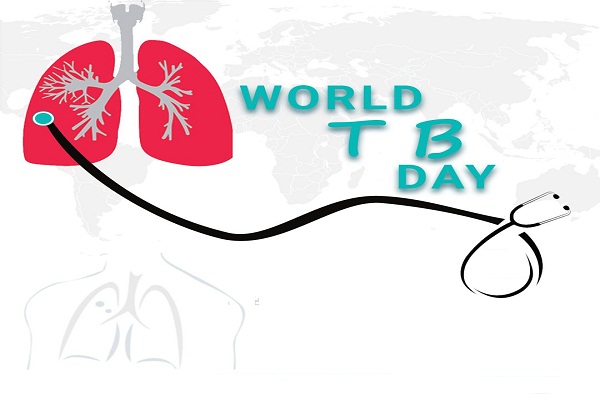
Obesity, according to NHPI, is a ‘condition where a person has accumulated abnormal or excessive body fat that causes negative effects on health’. Obesity is result of incorrect ratio of calories consumed and calories spent. Once believed to be a problem of high income countries, now overweight and obese population riddles low & mid-income countries too.
According to the National Family Health Survey 4 (NFHS-4), every third woman (34%) living in Mumbai was found to be overweight or obese; as against the same survey in 2005-06 where the number was pegged at 27% in the 15-49 yrs age group. Men in this survey fared far worse; 18% men were pegged to be overweight or obese in 2005-06, the figure in 2016 doubled and stood at 35% in the 15-49 yrs age group.

These are alarming numbers, which are only increasing year on year. Obesity is a big challenge today for many individuals. There are many myths associated with obesity that must be busted. This will help people to seek medical intervention at an appropriate time, to beat unwarranted weight gain and improve their health status.
Myth: Regularly eating (versus skipping) breakfast is protective against obesity
Fact: Clinical trials that studied the outcomes of eating versus skipping breakfast, showed no effect on weight in both the groups. So, it does not matter if you have breakfast or not; what matters is the change of habits. While going from skipping breakfast to eating breakfast, are you putting on weight? If yes, it would indicate that your total calorie intake increased without much change in your physical activity, therefore leading to weight gain. So if you choose either of the options, skipping or eating breakfast, it must be accompanied by appropriate physical activity.

Myth: Just eating more fruits and vegetables will result in weight loss or less weight gain
Fact: It is true that the consumption of fruits and vegetables has health benefits. But unfortunately, when it is not accompanied by increase in physical activity, weight gain may occur or there may be no change in weight at all. Physical activity plays a crucial role when aiming for weightless, only diet restriction is not the best step forward.
Myth: Since obesity is influenced by genetics, it cannot be prevented
Fact: This is not true. Any weight gain needs environmental support; unless there is excessive calorie intake, weight gain cannot happen.
Also read: Are diet and exercise better than surgery for weight loss?
Even genetically predisposed obesity can be controlled and prevented with proper dietary modifications, appropriate physical activity and regular consultations with your doctor.
Myth: It is good to lose slowly than rapidly
Fact: While in a weight loss programme like diet and exercise regimen, it is not clear why some obese persons lose weight faster than others; a recommendation to lose weight slowly might give poorer results in the ultimate success of weight loss efforts. It is okay to lose weight rapidly if you are following appropriate diet and exercise regimen, with the help of a licensed supervisor. There is no fixed scale that helps you choose over rapid or gradual weight loss.
Myth: If by exercising I do not lose weight I have no health benefits
Fact: This is not true. Exercising reduces the chances of weight gain, even in absence of weight loss. So consider exercise as a crucial part of your weight loss journey.
Myth: Bariatric Surgery is done for extremely obese people and has high risk associated with it
Fact: Untrue, Bariatric surgery has been proven to be the most effective weight loss method for morbidly obese patients. It is also meant for the ‘not-so-obese’ people with type-2 Diabetes, those with high cholesterol, Polycystic Ovary Syndrome (PCOD), Obstructive Sleep Apnea etc.; it may also help cure all of the above. Bariatric surgery is very safe and is the most effective long-term weight loss method, when diet and exercise fails.
Here’s a real life case study that will help differentiate the myths from the facts:
Mr Carlos D’Souza, a Marketing Manager in Oman, migrated from Mumbai 5yrs ago and lived a good life. The problems began 3yrs ago, when a good job, relaxed social life, and miniscule familial responsibilities became too good to be true. He started putting on weight, from his original weight of 80 kg, he went to 165 kg in three years.
He developed Diabetes and Asthma as well. He could hardly walk a few 100 meters before he could develop breathless. His job required him to be on the field for about 8hrs a day, and that started becoming increasingly difficult. The story is not one of its kinds; many of us may have seen ourselves, our friends and acquaintances experience similar weight gain issues.
The solution of course lies in prevention, but if that would have been easy, 10-15% of Indians would not have been overweight! The hallmark of living a healthy life is to eat a balanced meal and to maintain a good amount of physical activity. As for Mr D’Souza, well the best option for him was to undergo a Bariatric Surgery followed by a doctor prescribed diet and activity plan. It changed everything for him; in a year, he lost 85Kgs, his blood sugars normalised and he did not need Asthma medications any more. The best part, he could marry his childhood sweetheart!
(Disclaimer: The writer is Dr Sharad Sharma, Laparoscopic and Bariatric Surgeon, Hiranandani hospital. Views expressed are a personal opinion.)
Be a part of Elets Collaborative Initiatives. Join Us for Upcoming Events and explore business opportunities. Like us on Facebook , connect with us on LinkedIn and follow us on Twitter , Instagram.












